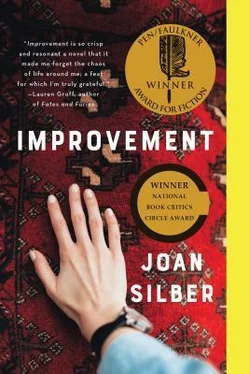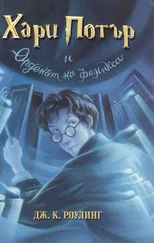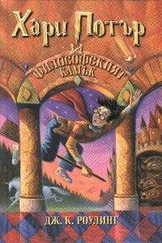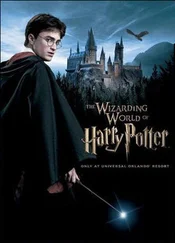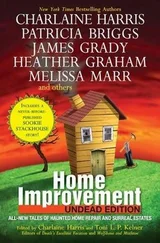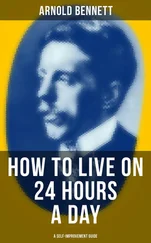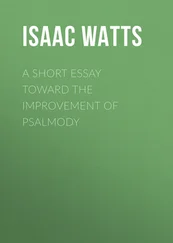What saved her was the need for money. She had to move out of these spells of raging grief—in its manic and its icy stages—and remember how to feed herself. She had to go back to work in that salon and do whatever she did to women’s eyebrows and she had to speak to people and make sense. Whatever they talked about in those places—TV stars’ sex lives, weather trends, vegan diets—she was better off once she was doing it again.
I heard some of this from a woman in my building who used to go out with Maxwell and some other parts from a mother with a kid in Oliver’s daycare group. The later reports made me less afraid of meeting Lynnette, but in fact I never saw her, even after Kiki returned and Oliver and I were resettled on our old block.
And now that my aunt was in New York again, at the end of her three weeks away, she kept calling me on the phone. “You can come back and stay any time, you know that,” she said. “If you feel uncomfortable where you are. If you’re afraid that what’s his name—Boyd—is going to come bother you in any way.”
“Boyd!” I said. “Why would he do that?”
And then Oliver had to start shrieking in the background. “Boyd’s coming! When’s Boyd coming?”
“He’s not. He’s not, not coming,” I said.
But Oliver wouldn’t stop; he got stuck inside this. “Boyd is too coming, you don’t know anything,” he said. “He wants to see us!” Oliver could shout very loud when he wanted.
“I don’t think so,” I said.
What did she mean, bother me ? I’d only once had a boyfriend who was in any way abusive—Oliver’s father, Kelvin—and I left him before Oliver was born. Nothing I said was going to make any difference to her.
“Put him to bed. I’ll call you later,” Kiki said.
“I’ll have him calmed down in a minute.”
“It’s hard for kids to get it when things are over,” my aunt said.
“He has to learn that,” I said, with Oliver still making a racket. “Everyone has to learn that now.”
In my apartment, I looked again for any of the cigarette money left behind. Who knew what hidden nooks some of those packs of bills might have just slipped down into? I was thinking I would send whatever money there was to Lynnette. Here it is, it’s yours . A windfall of cash might remind her of better days. I told Oliver I was conducting an autumn cleanup, and he said, “You make it messier.”
Claude used to always say he was planning to set his sister up in her own brow bar. He considered himself already very close to being filthy rich. All she needed was a lease on a storefront—eyebrows eternally! That was what she longed for, to be her own boss (she already bossed everyone), and a place like that could keep her going long after the initial investment was gone.
If I happened to find enough money, Lynnette would see, when the sum came to her, that I wasn’t the person she had to hate. Her email address was on my computer, leftover from the invitation she’d sent for Claude’s birthday party, and her home address was on the invite. I could put a check in the mail to her, simple as that, or I could send the money online by PayPal or something. I knew how to spell the woman’s name.
I knew I was making this up, but it was an idea that did me good. I had no way on earth to undo what I wanted every day not to have done. Claude was never coming back. But here was something I could do—say what you will, money had the power to improve some of Lynnette’s circumstances. Too bad there was no money.
When I went to get Oliver at daycare, I was early and I had to wait outside in the hall while they finished number puzzles. Waiting with me in the hallway was Tania, the mom who’d gone to high school with Maxwell and Boyd. She was looking perky, with petunia-pink lipstick. I had to say, “You hear any news about Maxwell?”
“He’s still getting himself fixed up,” she said, “but he’ll be okay. That’s what they say. They can fix him. He’s staying with his sister in Albany, he’ll be back.”
“And how’s Lynnette doing?” I didn’t know I was going to say that.
“How up-to-date are you? You know the thing with the wrecked car? Which was in her name.”
How smart of me not to let them put it in mine. It was not pleasant to have to picture the Taurus, with its dented silver finish and the rabbit doll Wiley had hung on the mirror for luck.
“You know it costs fifty dollars every day your car’s in storage? Even if it’s a wreck they can’t move? They just keep charging you. And then they wanted her to pay them to haul it to some junk dealer,” Tania said.
“What happened?”
“It went on much too long. They threatened her until the guys got it together to get money to help her. Boyd and some friends.”
“There was cash in the car,” I said. Was this stupid to utter?
“It walked away,” she said. “Some cops got lucky. Or the towing crew. None of the guys was in a hurry to call to ask about it.”
Everything up in smoke. Their theory had been very simple—buy cheap, sell fast. Wiley picking out expensive clothes for any female he was dating. Claude buying toys for his new girlfriend’s kid. Boyd reading through apartment listings, for us. All that dreaming.
One of Oliver’s teachers opened the classroom door just then, and we had to find our kids amid the clanging chairs and tables and the other restless four-year-olds. “Hey!” Oliver said. “I’m going to count to a hundred for you. One two three four five six seven eight . . .” He did the whole thing.
All that night I was thinking about Claude. I was remembering the time he bought that toy piano for his girlfriend’s kid. We all went to some discount store with him; we had to watch him look at the cartons of different keyboards. They wouldn’t let him try any, just look. “Which you think is the best?” he said. He never even met the kid. Oliver had opinions, but at the cash register he started crying when he realized no one was letting him play with it; the box was staying closed. “Kid makes a lot of noise,” Claude said. “Over nothing.”
“Better get used to the noise,” Boyd said.
“Jeshauna won’t cry with me around,” he said. He almost believed himself, too. It was a happy day. “Don’t laugh that hard,” he said to me.
In the meantime, Sabina, my friend, was excited about a new boyfriend, and why shouldn’t she be? I made a full display of totally fake interest. She said he was one of the cooks at the restaurant where she worked. “It’s worth it to sleep with him just for his mushroom risotto. Just kidding,” she said. “We’re only starting, we don’t even know each other. That’s always the best part, isn’t it?”
All her skepticism was bullshit. She had nothing but hope.
“You’ll find someone, too,” she said. “No rush.”
I hadn’t had any dreams about Boyd in a while, and it was more than a month since we’d seen each other. When I was at my aunt’s, I had terrible dreams of longing. Boyd in all his sudden particulars (there he was) would be coming closer, he’d be with me but not quite, and just before he reached for me, I’d wake up in that strange bed, gypped and cheated and ridiculous.
“It’s okay if you’re not actively looking yet,” Sabina said. “But don’t let any grass grow under your feet.”
“Don’t worry about my feet,” I said.
Sabina was annoying me. I saw why, in older places, widows weren’t supposed to marry until a decent period had passed since the death. Those were rules that made sense. But whose widow did I think I was? Boyd was alive and well. Claude wasn’t even a relative. One had left me and one had died. I wasn’t going around wailing to the world about my tangled mourning—it was my own business.
Читать дальше
